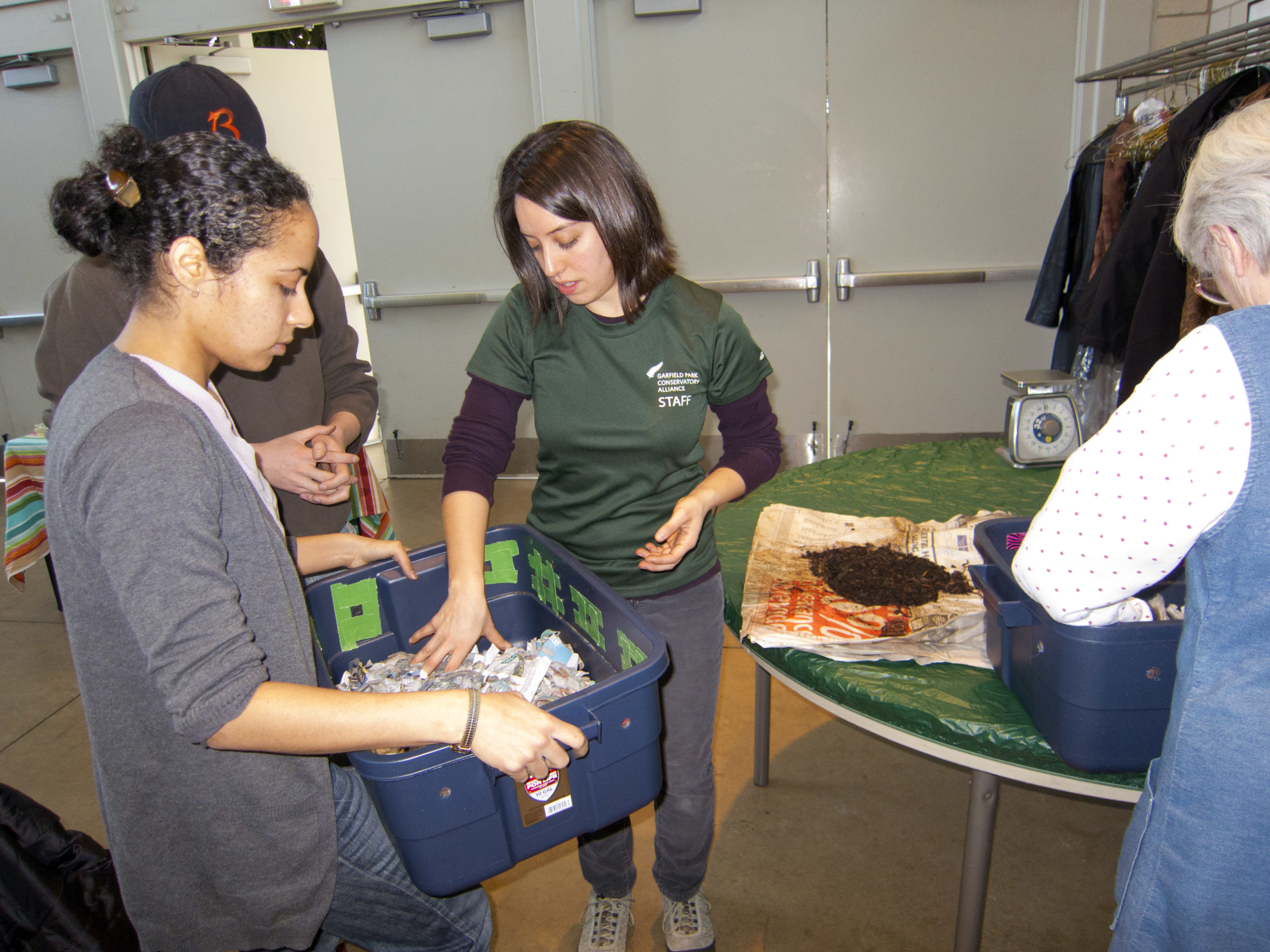Worms aren’t supposed to poop in the house … except when their private business can help make a spring garden greener.
Worm composting during the winter months can help a spring garden start out right, providing nutrient-rich fertilizer for plants.
Chicago residents interested in composting gathered at the Garfield Park Conservatory over the weekend, to make their own worm bins and learn about the benefits of indoor composting.
“It’s a practice for responsible living,” said Mattie Wilson, co-leader of the event and volunteer coordinator for the conservatory.
According to the U.S. Environmental Protection agency, the U.S. generates more than 34 million tons of food waste per year, most of which decomposes in landfills.
Worm composting is an easy, environmentally friendly alternative to landfill decomposition.
“You can do a lot with waste management in a small space,” said Amber Gribben, co-owner of Urban Worm Girl, a Lincoln Park- worm-composting business. That’s because worms can eat half their body weight every day, she said.
Interest in worm composting has really increased since she opened Urban Worm Girl in 2008, Gribben said, and people now are ahead of the learning curve, knowing about the practice before inquiring about their options.
She said the draw of worm composting is that it can be done inside, year-round.
Composting also has additional benefits, including pollution control, by providing a chemical-free fertilizer and improving the health of natural ecosystems by recycling nutrients.
“Worm composting is faster and more effective than regular composting,” Naaman Gambill, the conservatory’s green-living Coordinator, said during the event.
This is because worms act as natural aids to decomposition, or the breakdown of organic material, because they have special stomachs, called the crop, that are able to grind down the material. They then excrete the food in the form of nutrient rich compost, Gambill said.
Pests, such as fruit flies, are not as big an issue with indoor composting as one might think, so long as the bin set up is correctly and covered with a lid, attendees learned this weekend.
The bins contain three tiers. The red wrigglers at the bottom, food scraps in the middle, and a newspaper scrap covering on top to keep away pests, Wilson and Gambill explained.
“Your compost will let you know if something is wrong,” Wilson said.
Most of this communication is by smell. The system should have an earthy scent. If it smells like rotting food, there may be problem with the system, such as too much food or too little moisture.
Wilson said worm composting is catching on in Chicago, especially as sustainability has become a hot topic.
“I think people enjoy it because it’s a way people can do their own little bit,” she said.
The Garfield Park Conservatory offers worm-composting workshops every few months. The next is being offered Saturday, May 5. However, guests interested in worm composting can visit the conservatory all year round to see and learn about their indoor- and outdoor-composting systems.
Medill School of Journalism – Quarter 2
Medill News Service – Medill Reports


